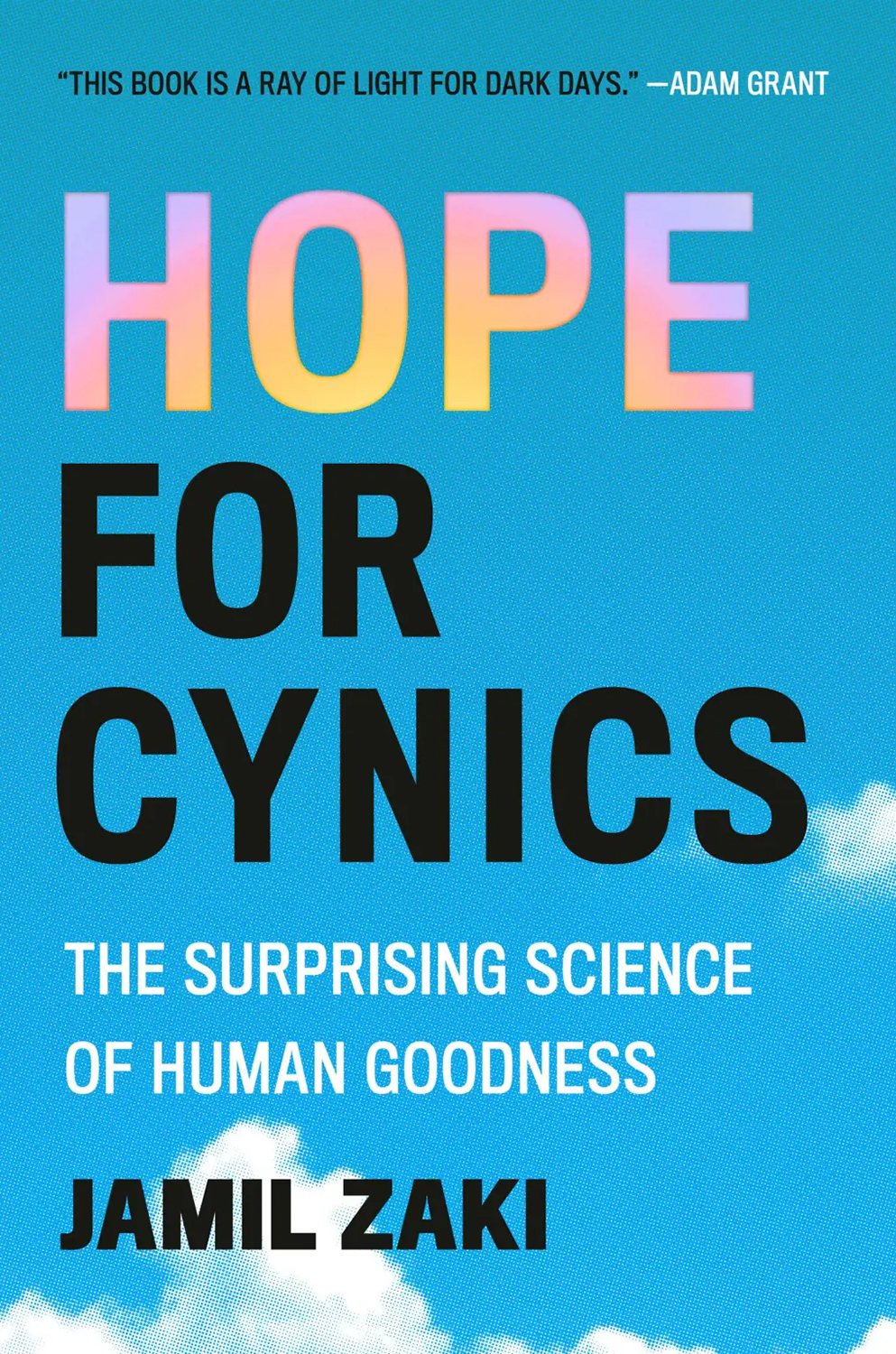A few years ago, Jamil Zaki, a Stanford psychologist who researches empathy, found himself split between his research and his inner life.
It was the height of the COVID-19 pandemic and by day, he radiated positivity as he praised the many benefits he and his lab had discovered about how kind, generous, and open-minded most people are – qualities the world needed to hear about.
But by night, he was doomscrolling, caught in an endless loop of negative thinking.
Zaki became acutely aware of the contradiction: If a scholar dedicated to studying human goodness was losing faith in humanity, what hope did the rest of us have?
In his new book, Hope for Cynics: The Surprising Science of Human Goodness (Grand Central Publishing, 2024) Zaki, an associate professor of psychology in the School of Humanities and Sciences and director of the Stanford Social Neuroscience Laboratory, shares how he escaped the cynicism trap and offers simple but effective practices to avoid our cynical tendencies from taking over.
Cynicism is a losing strategy
Zaki argues that cynicism – the idea that people tend to be selfish, greedy, and dishonest – is often more naive than we realize. Of course, bad things do happen, but cynical perceptions do not stack up to reality. Cynicism, he explains, is both personally harmful and damaging to society.
Research shows cynics tend to earn less money, experience more depression, and drink more heavily. Tragically, they are more likely to die younger than non-cynics. Cynics are also less likely than optimists to take part in collective action, protest, or sign a petition and vote.
“By never trusting, cynics never lose,” writes Zaki. “They also never win. Refusing to trust anyone is like playing poker by folding every hand before it begins. Cynicism protects us from predators but also shuts down opportunities for collaboration, love, and community, all of which require trust. And though we forever remember people who hurt us, it’s harder to notice the friends we could have made if we’d been more open.”
Social shark attacks
Zaki saw these effects firsthand at Stanford, where students drastically underestimated each other.
In 2022, Zaki and his lab surveyed thousands of Stanford undergraduates, asking them how much they cared about their peers, whether they enjoyed helping other people, and if they wanted to connect with students they didn’t know.
The researchers also asked them about their perceptions of the average Stanford student.
His findings, published in Hope for Cynics, were startling.
“We discovered not one, but two Stanfords,” writes Zaki. “One was real, made up of students’ self-reports. This campus was extraordinarily warm. Eighty-five percent of students said they wanted to meet new friends. Ninety-five percent said they enjoyed helping peers who were feeling down. Their empathy was through the roof.”
But in students’ minds, they saw the Stanford community as uncongenial.
“They believed their ‘average’ peer was relatively unfriendly, judgmental, and callous,” Zaki adds, noting how these beliefs made the students less willing to share their struggles with friends or start a conversation with their classmates.

Grand Central Publishing, 2024
Students were experiencing what Jamil Zaki calls “social shark attacks,” imagining worst-case scenarios as inevitable, even though the likelihood of them actually playing out was incredibly unlikely.
To counter this, Zaki’s lab worked with Frosh 101, a program for first-year students, to launch an advertising campaign to correct these misperceptions. They put up posters in target dorms, presenting students with real data about how much their peers wanted to connect, and had conversations with residents to discuss the findings. The intervention helped students feel more positive and willing to engage with their peers.
Being a ‘hopeful skeptic’
In addition to questioning our assumptions of other people, Zaki encourages replacing cynicism with “hopeful skepticism,” which combines openness to new information with critical thinking.
Hope, he explains, is not to be mistaken for naivety or even optimism. Optimism is idealistic, and in excess, can turn into “toxic positivity” which brushes away negative feelings and emotions.
Hope, on the other hand, acknowledges those experiences. By recognizing them, hope can galvanize people towards change and action.
Adding skepticism to hope invites inquiry.
As Zaki emphasizes, hopeful skepticism is about applying a scientific mindset. Like a scientist, hopeful skeptics seek out facts and evidence instead of relying on feelings and fears. And rather than being fatalistic, they are critical and curious instead.
“Cynicism often boils down to a lack of good evidence. Being less cynical, then, is simply a matter of noticing more precisely,” Zaki said. He adds: “The cynical voice inside each of us claims that we already know everything about people. But humanity is far more beautiful and complex than a cynic imagines, the future far more mysterious than they know.”